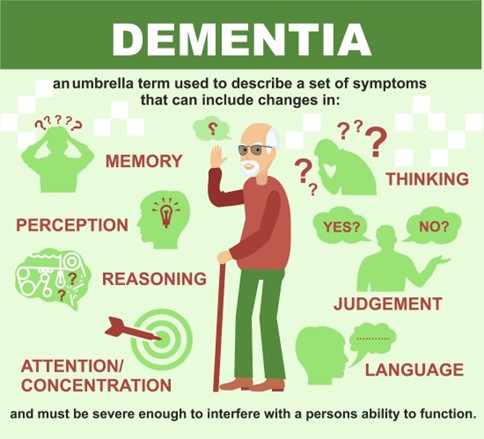An older adult female client is admited to the psychiatric unit for assessment of a recent onset of dementia. The practical nurse (PN) notes that in the evening, the client becomes restless, confused, and agitated.
Which instruction should the PN provide to the unlicensed assistive personnel who is assisting in the care of the client?
Calmly offer to walk around the hallways with the client.
Make sure the room lights are dimmed to calm the client.
Leave the client alone until signs of agitation have passed.
Measure the client's vital signs at the onset of agitation.
The Correct Answer is A
Restlessness, confusion, and agitation in the evening are common symptoms of sundowning, which is a condition that affects some older adults with dementia. Offering to walk around the hallways with the client can provide a calming effect and reduce the symptoms of sundowning.
Dimming the lights may actually increase confusion and agitation, and leaving the client alone may increase feelings of isolation and fear.
Measuring the client's vital signs may not be necessary unless there are specific medical concerns.

Nursing Test Bank
Naxlex Comprehensive Predictor Exams
Related Questions
Correct Answer is B
Explanation
Acute leukemia can cause thrombocytopenia, which is a decrease in the number of platelets in the blood. Platelets are essential for blood clotting, and a low platelet count can result in heavy menstrual bleeding. Therefore, reviewing the client's platelet count is the priority in response to the client's statement. The other laboratory data may also be important to assess, but platelet count is the most relevant in this situation.

Correct Answer is C
Explanation
For a child with heart failure, the greatest priority for the practical nurse (PN) is to conserve the child's energy. Clustered care activities and rest periods will help to conserve the child's energy and minimize the workload on the heart.
Monitoring therapeutic levels of phenytoin (A) is not relevant to the care of a child with heart failure. Increasing fluid intake (B) is not a priority intervention for a child with heart failure, as excessive fluid intake can worsen heart failure. Restricting intake of foods high in sugar (D) may be necessary for a child with heart failure, but it is not the greatest priority for the PN to address.

Whether you are a student looking to ace your exams or a practicing nurse seeking to enhance your expertise , our nursing education contents will empower you with the confidence and competence to make a difference in the lives of patients and become a respected leader in the healthcare field.
Visit Naxlex, invest in your future and unlock endless possibilities with our unparalleled nursing education contents today
Report Wrong Answer on the Current Question
Do you disagree with the answer? If yes, what is your expected answer? Explain.
Kindly be descriptive with the issue you are facing.
